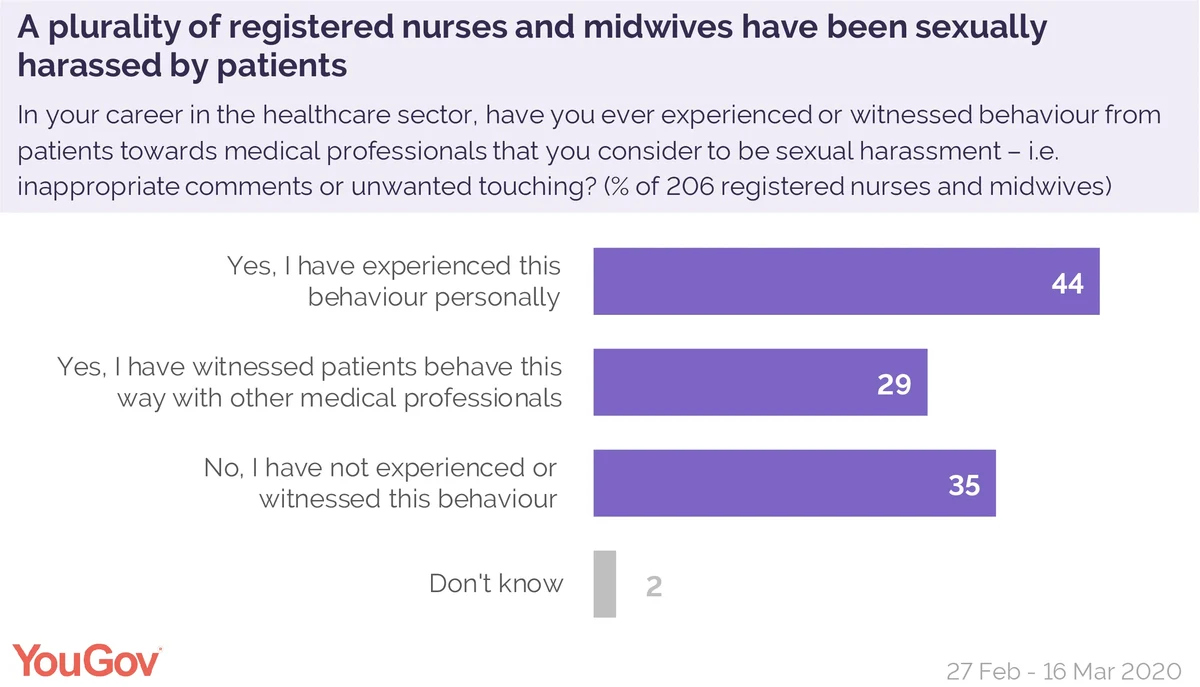YouGov data reveals that over half of patient-facing workers have either experienced or witnessed this behaviour – rising to three-quarters of nurses
Beyond the immediate pressures of the COVID-19 pandemic, Britain’s healthcare workers face a number of longstanding issues – including sexual harassment.
In recent years, reports have emerged of doctors, nurses, and other industry professionals experiencing inappropriate conduct from people under their care. Data from YouGov’s health panel indicates that over a quarter (28%) of frontline medical professionals have been sexually harassed by patients, with a similar proportion (25%) saying they’ve witnessed this kind of behaviour. Respondents were allowed to select both the option that they'd experienced inappropriate conduct personally and the option that they've seen it happen to others.
A quarter of those who’ve experienced or witnessed this behaviour (25%) also say they’ve seen it or been subject to it on a monthly basis, with almost one in ten (9%) saying it happens on a weekly basis or more.
Over four in ten nurses have been subject to sexual harassment from patients
Sexual harassment is particularly pronounced among registered nurses and midwives. More than four in ten (44%) have been on the receiving end of inappropriate comments, touching, or other misconduct, while three in ten (29%) have witnessed it. Overall, nearly three quarters of nurses and midwives (73%) have seen or experienced this behaviour.

Of this group, nearly a third (32%) say they’ve witnessed or been subject to sexual harassment at least once a month. Some 12% say it happens once a week or more.
Beyond frontline medical professionals, 21% of non-patient facing staff have either seen or experienced sexual harassment from the people under their care. Of this group, 7% say they have been personally subjected to it.
Along gender lines, nearly three in ten (29%) patient facing and non-patient facing female healthcare workers say they have been sexually harassed compared to 11% of males – but more than a quarter of men say they’ve seen this behaviour first-hand (27%) compared to a fifth of women (22%).











